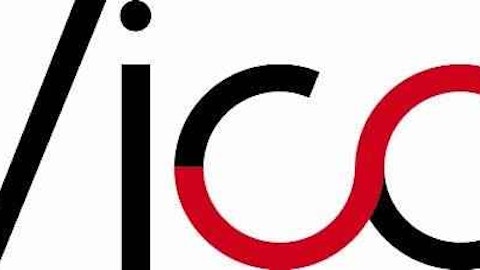At The Motley Fool, we poke plenty of fun at Wall Street analysts and their endless cycle of upgrades, downgrades, and “initiating coverage at neutral.” Today, we’ll show you whether those bigwigs actually know what they’re talking about. To help, we’ve enlisted Motley Fool CAPS to track the long-term performance of Wall Street’s best and worst.
Maxim Integrated Products Inc. (NASDAQ:MXIM) ditches Dendreon Corporation (NASDAQ:DNDN)
Jennerex. Onyx Pharmaceuticals, Inc. (NASDAQ:ONXX). Amgen, Inc. (NASDAQ:AMGN). Bristol Myers Squibb Co. (NYSE:BMY). The field of companies racing to develop virus-based cancer cures just keeps growing and growing, as biotechs big and small try to find the best way to train the body’s immune system to fight cancer. But according to one analyst at least, one of the early leaders of this movement toward such “oncolytic immunotherapies” is starting to fall behind.

But are they right?
One word: Yes
Admittedly, Maxim’s advice appears to fly in the face of the recent upgrade that rival i-banker Cantor Fitzgerald gave Dendreon last month. Arguing that despite competition from other oncolytic researchers — such as the others named above, and even more closely from Johnson & Johnson (NYSE:JNJ)‘s Zytiga — “expectations for Provenge are too low,” Cantor upped its target price on Dendreon to $7 last month, even as it held its rating at “neutral.”
And yet, it seems to me that Maxim has the better of this argument. Remember that Dendreon itself publicly declared it needs to make $500 million in annual sales in order to just break even on its business — much less earn real profit. Problem is, Dendreon was originally expected to approach this goal in 2013. Today, though, most analysts agree that Dendreon’s unlikely to book more than $363 million in revenue this year, and won’t pass the $500 million mark before 2016. In the fast-moving world of biotech, that’s an awful lot of breathing room that Dendreon has given its competitors.
Meanwhile, Dendreon itself remains incapable of earning a profit. It’s cut its rate of cash burn substantially, granted, yet still ran $118 million negative on free cash flow over the past 12 months. Considering that Dendreon has already amassed nearly $200 million more debt than cash on its balance sheet, that’s an uncomfortable position for the company to be in. In short, Maxim’s right — and Dendreon’s a sell.
With friends like these…
At the same time, Dendreon’s peers in the search for a cancer cure just get stronger and stronger. Onyx, arguably the weakest of the bunch (Dendreon excepted), is now profitable on a trailing-12-month basis. While expected to post a loss this year, analysts polled by S&P Capital IQ believe Onyx will turn a small profit in 2014, then grow rapidly in profitability from there on out. It’s also cash-rich and free cash flow positive in most years.
Amgen looks even better. Vastly profitable, the stock costs only 15.4 times earnings today, versus “infinity-times-earnings” for unprofitable Dendreon. Its debt levels are minimal for a biotech giant of its size, and Amgen throws off a ton of free cash every year (distributing some of it in a tidy 2.2% dividend yield).
As for giants Bristol-Myers and Johnson & Johnson, it probably goes without saying that both are profitable, and sizable producers of free cash and earnings alike. They also pay better dividends than anyone else mentioned above. Granted, at 20 times earnings (J&J) and 31 times (B-M), neither of these stocks looks particularly cheap. When considered in light of their anemic, mid-single-digit earnings growth rates, I’d be hard pressed to recommend investing in either one.
Fortunately for their shareholders, however, and unfortunately for Dendreon, a competitor’s stock doesn’t have to look attractive in order for said competitor to easily crush its rivals. That’s the fate Dendreon faces if it doesn’t get its act together soon, and begin delivering on its promises about Provenge.
The article This Just In: Upgrades and Downgrades originally appeared on Fool.com and is written by Rich Smith.
Fool contributor Rich Smith has no position in any stocks mentioned. The Motley Fool recommends Johnson & Johnson. The Motley Fool owns shares of Dendreon and Johnson & Johnson.
Copyright © 1995 – 2013 The Motley Fool, LLC. All rights reserved. The Motley Fool has a disclosure policy.





